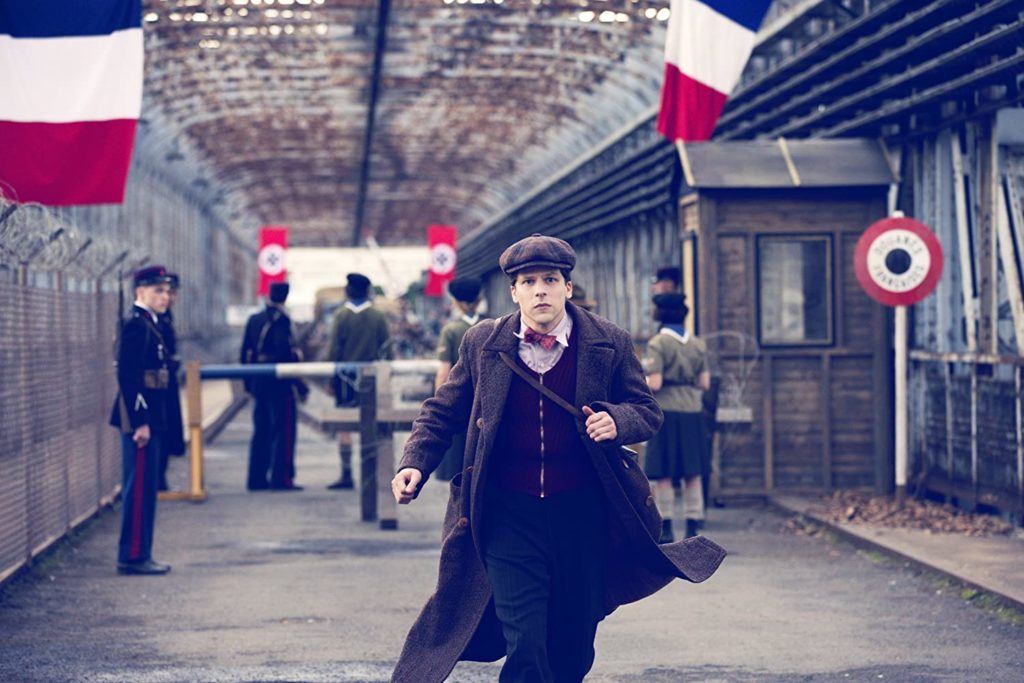Resistance

Jesse Eisenberg stars in RESISTANCE. (Photo: IFC Films)
Maybe your negative perception of mimes will change after seeing Resistance, a wartime thriller in which the heroism of the world’s most famous mime comes through loud and clear.
While it too often settles for World War II clichés, this uneven biopic of French performer Marcel Marceau benefits from evocative visual flourishes, committed performances, and a remarkable true story.
When the war began, Marcel (Jesse Eisenberg) was a teenager living in Strasbourg, where his father (Karl Markovics) dismissed his cabaret pantomime dreams as child’s play. “I’m a serious actor. I’m not a clown,” he professes.
Then the Nazi occupation leads to persecution for Jewish families such as his. Marcel impulsively joins his cousin (Geza Rohrig), who finds a loophole that might enable Jewish orphans to be saved from transport to concentration camps.
Their efforts coincide with those of the French Resistance, and soon Marcel become romantically linked to a liberation fighter (Clemence Poesy), who becomes his partner in trying to lead hundreds of kids to freedom while staying one step ahead of ruthless Gestapo officer Klaus Barbie (Matthias Schweighofer).
Eisenberg’s accent is awkward (and he’s too old), but he otherwise slides into a role in his neurotic wheelhouse while also showcasing his versatility. He convinces during the performance sequences, including an early impromptu routine in a warehouse for a gathering of children just off the Kindertransport that’s especially charming, with such whimsy in stark contrast to the horrific brutality taking place right outside the door.
The embellished screenplay by director Jonathan Jakubowicz (Hands of Stone) lacks depth and context in spots, succeeding most often in its intimate, character-driven moments.
As Resistance transitions into a broader historical thriller in the second half, it loses focus and feels more familiar. The tension is more sporadic than sustained. Scene-setting bookends, featuring Ed Harris as George Patton, seem tacked-on and reflects the movie’s manipulative tendencies.
However, the film shows genuine appreciation for Marcel’s craft — not just the artistry but the unique communicative value — and for his dedication in the face of naysayers. Furthermore, it conveys the importance of art as a vessel for healing and comfort even during the darkest of times.
The richly detailed period re-creation further shines a deserving spotlight on Marcel’s courage and conviction, even if he’d never speak about it himself.
Rated R, 121 minutes.